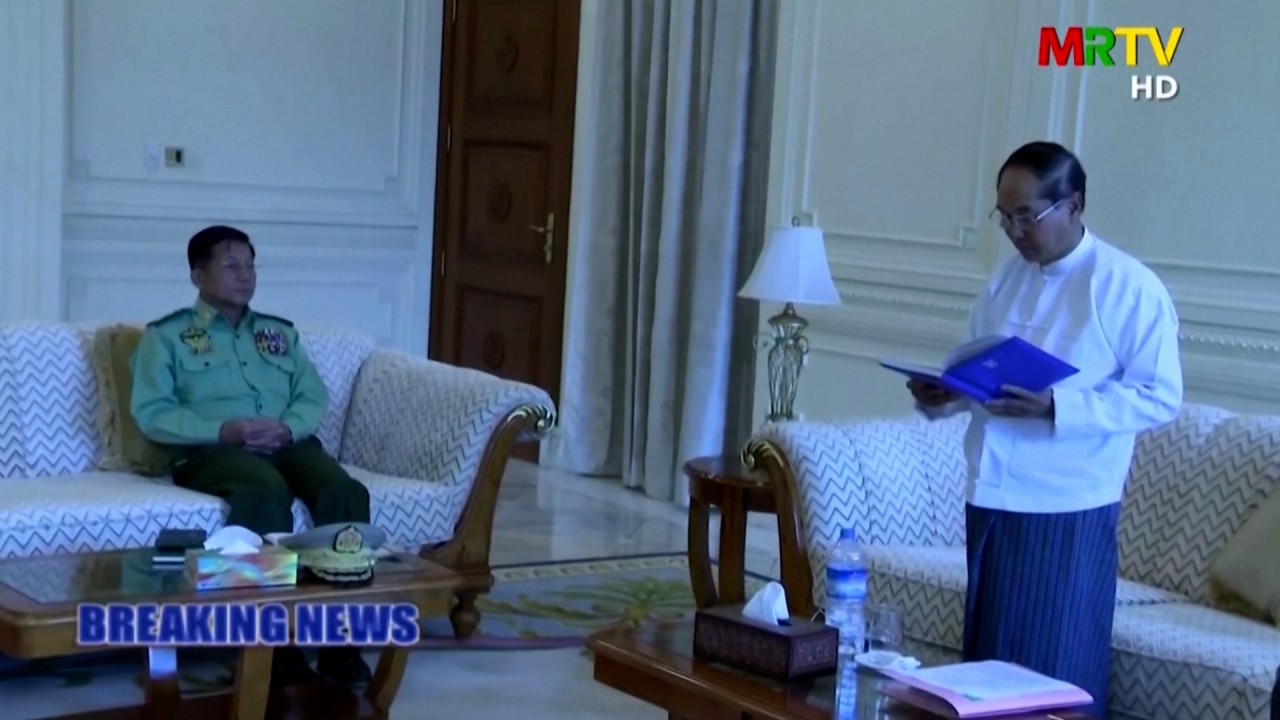[ad_1]
“Of course country risk is always factored into investments such as these. After Myanmar held an election in November last year, the general outlook was that the country would be relatively stable in the next three years,” said the person, who requested anonymity.
“But after hearing about the coup … everyone involved in the project immediately raised red flags.”
The Myanmar Banks Association on Monday said that due to systems and internet outages, all of its members would suspend operations, according to a notice posted by local media.
That would further hinder financing of the telecoms project, according to the person.
– that aims to link the southern Chinese province of Yunnan with Myanmar’s second-largest city, Mandalay, and beyond to Yangon and Kyaukpyu in Rakhine state.
Agriculture is the main pillar of Myanmar’s economy, accounting for over 20 per cent of GDP and more than 22 per cent of total exports in the 2019-20 financial year, according to the commerce ministry.
While some agricultural exports such as watermelons have been affected by the pandemic, shipments of staples like rice have increased. Myanmar exported 2.25 million tonnes of rice to China in the first 10 months of 2019-20, up from 1.8 million tonnes a year earlier, state news agency Xinhua reported.

01:40
Myanmar coup: acting president Myint Swe seen holding a meeting with military officials
A Burmese woman living in the Chinese border city of Ruili, in Yunnan, said she was anxious about the safety of her family and friends in Myanmar and closely watching the situation to see how it may impact trade.
“If the situation deteriorates and there is unrest in Myanmar, trade with China will be affected,” said Ah Mu, 30, who has been travelling between the two countries since she moved to China as a teenager but did not give details of her business.
“Myanmar’s exports of agricultural products such as rice and corn could already be affected by the phone and internet outages in the country.”
“The coup doesn’t affect me since I am living in China,” said Lu, who buys jade from Myanmar and sells it in China. “What is having an impact is the pandemic, since my friends in Myanmar cannot go anywhere to buy jade … this situation has lasted for about a year.”
However, analysts said the long-term outlook was more stable for Chinese investments and infrastructure projects in Myanmar.
According to Fan Hongwei, a professor with the Research School of Southeast Asian Studies at Xiamen University, it was unlikely that China’s infrastructure projects in Myanmar would be affected by the coup, given Beijing’s ties with both the ruling party and the military.
“China has recognised the importance of the long-standing role played by the military and has maintained good relations with both sides,” he said.
“China is Myanmar’s biggest trading partner and source of foreign investment and capital. These are important and fundamental factors that will not change no matter who is in power in Myanmar.”
Beijing was likely to be most concerned about the possibility of renewed ethnic conflict that could break out and spill over into its border province of Yunnan, Fan said.
Additional reporting by Kristin Huang, Catherine Wong and Kinling Lo
[ad_2]
Source link